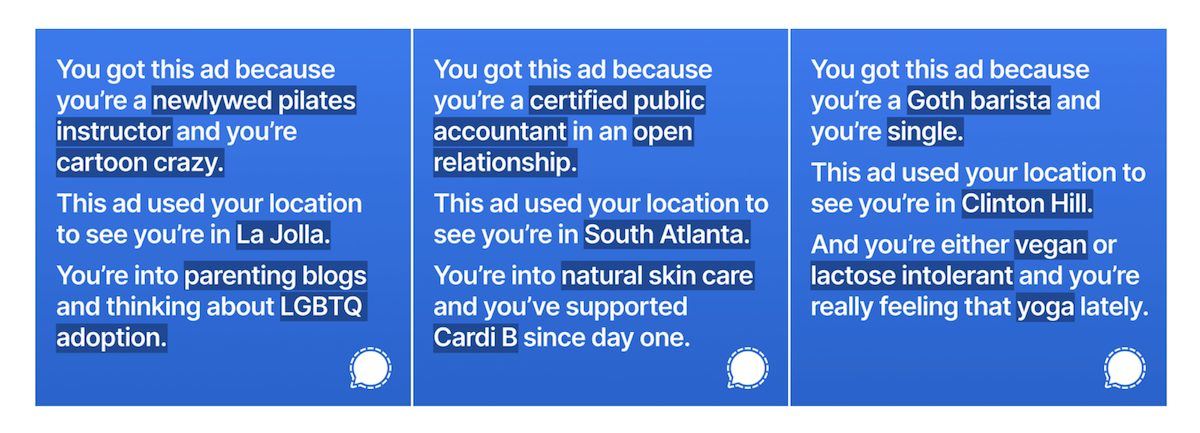A private messaging app, Signal has highlighted how Facebook-owned platforms like Instagram, Facebook, and WhatsApp show very personalized ads by gaining access to their private information. Stating that the business model of companies like Facebook “aren’t building technology for you, they’re building technology of your data” and are not transparent about how that data is used. 
Signal app is supported by users and does not run ads and more importantly track its users. Therefore, it created an Instagram ad campaign to show users how their data used, but Facebook put it down. Because these would be banned if they were transparent.

Facebook uses tools to access users’ personal and private information
Signal explains how the social media tech giant gains access to “unseen” information to run targeted ads.
The way most of the internet works today would be considered intolerable if translated into comprehensible real world analogs, but it endures because it is invisible.
However, Facebook’s own tools have the potential to divulge what is otherwise unseen. It’s already possible to catch fragments of these truths in the ads you’re shown; they are glimmers that reflect the world of a surveilling stranger who knows you.

And using those same tools which the social media company uses, Signal designed an Instagram ad campaign to show users how their data is used but Facebook disabled its ad account. So, in its blog post, Signal has shared some examples “of the targeted ads that you’ll never see on Instagram. Yours would have been so you.”
Facebook is more than willing to sell visibility into people’s lives, unless it’s to tell people about how their data is being used. Being transparent about how ads use people’s data is apparently enough to get banned; in Facebook’s world, the only acceptable usage is to hide what you’re doing from your audience.
Facebook, Linkedin, Instagram, WhatsApp, TikTok, and many digital platforms are free because they earn capital by running ads which sounds fair. But the issue is that these services breach users’ privacy to show targeted ads usually by invasive means like accessing mics of their devices to listen in, copying their information on the clipboard, and others. And selling their data profiles to data brokers. For this reason, Facebook very vehemently objected to Apple’s App Tracking Transparency feature in iOS 14.5 which prevents developers from unauthorized access to track users’ online activity across third-party apps and websites.